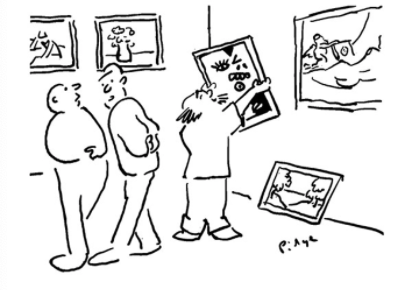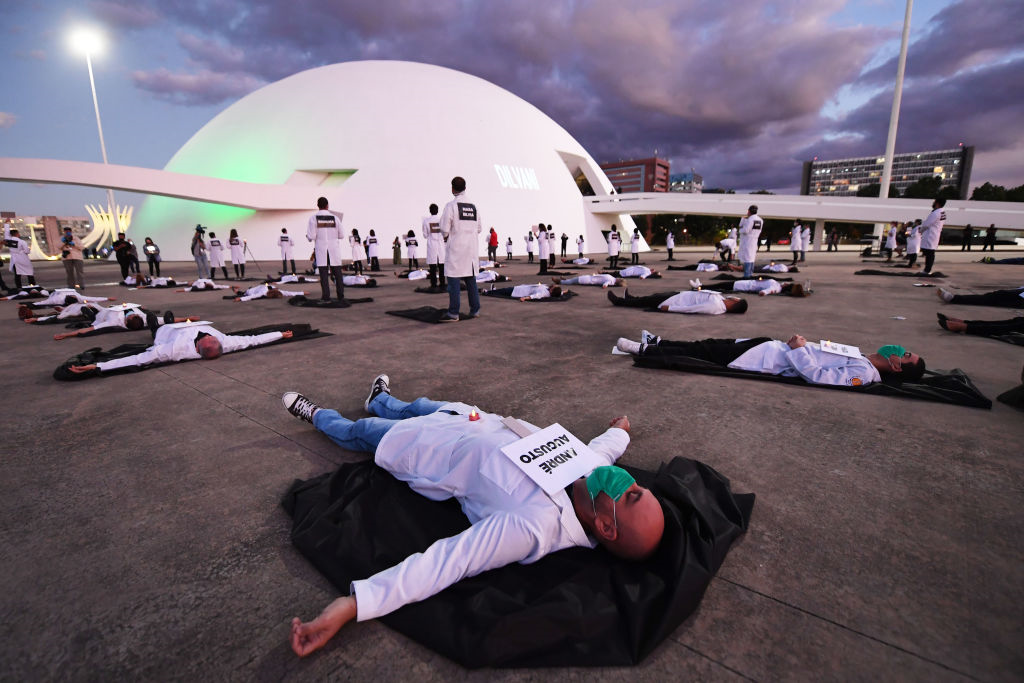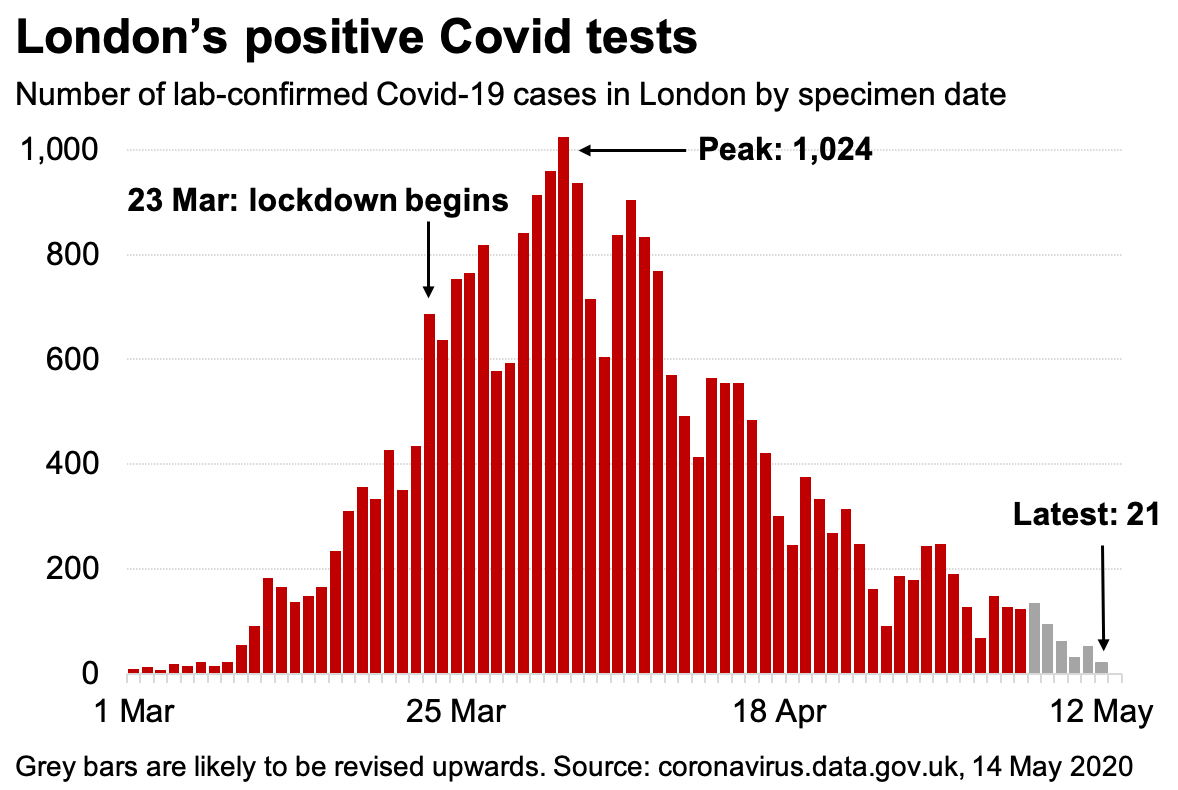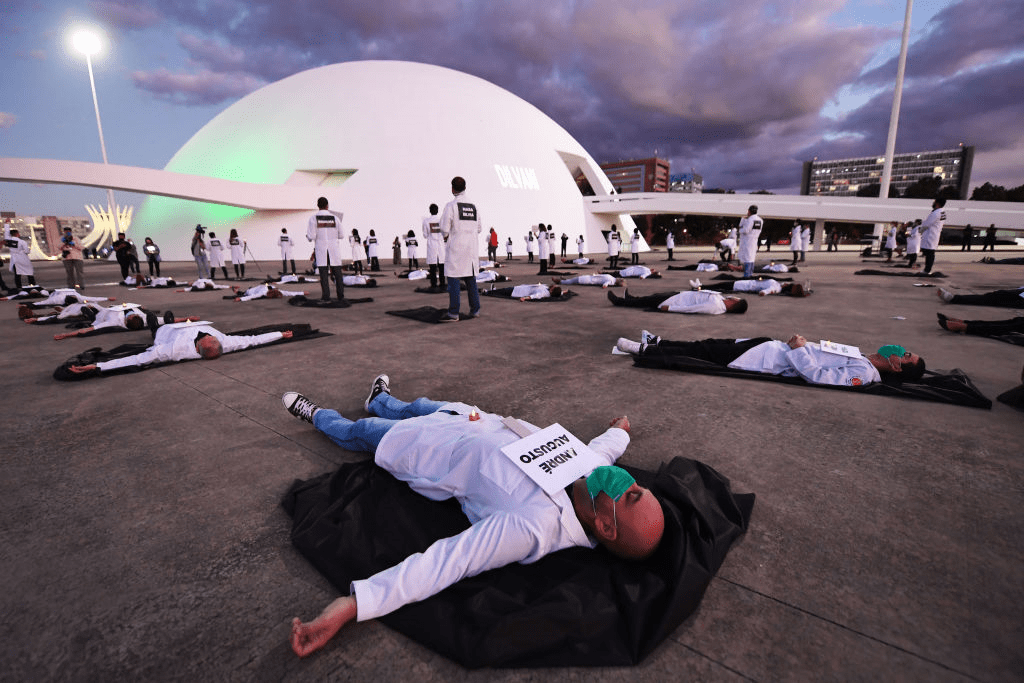The Spectator brings you the latest insight, news and research from the front line. Sign up here to receive this briefing daily by email, and stay abreast of developments both at home and abroad.
News and analysis
- Boris Johnson has declared war on fat as an increasing body of research suggests a link between obesity and Covid-19 deaths. James Forsyth has the details below.
- Some 20% of Londoners are thought to have caught Covid-19 and now less than 24 people a day in the capital are being infected with the virus, a Cambridge model predicts. This chimes with testing data below.
- The model also suggests that one in five children and one in nine adults – 6.5 million in total – are understood to have contracted the virus.
- New NHS data reveals one in four of those who died with Covid-19 also had diabetes, while one in five had dementia and one in six had chronic pulmonary disease.
- Denmark, which reopened its schools on 15 April, has declared its first day of no Covid-19 deaths.
- The Oasis Trust will reopen 35 of its primary schools on 1 June. Founder Steve Chalke says opposition to reopening schools is ‘rather middle class’. Former Labour education secretary David Blunkett has said children from deprived families are suffering most.
- Waiting times for operations have reached six months due to Covid-19. People may have to self-isolate for two weeks before entering hospital for surgery.
- People in Chigwell can now buy face masks from the UK’s first face mask vending machine.

‘He must have coronavirus. He’s lost his sense of taste.’
Boris Johnson declares war on obesity to tackle the virus
by James Forsyth
One of the constants of Boris Johnson’s political career has been his opposition to ‘nanny state’ interventions in people’s lives. In 2006, he overshadowed David Cameron’s first conference as Tory leader by supporting mothers who were pushing pies through school railings in protest at attempts to make their children eat Jamie Oliver-inspired, healthy school dinners. As recently as last year’s Tory leadership contest, he was attacking the so-called sugar tax for being ineffective and hitting the poor hardest.
But, as I say in the Times this morning, in a discussion with some of his senior ministers and advisers last week, Boris Johnson said: ‘I’ve changed my mind on [obesity]. We need to be much more interventionist.’ His change of heart has been driven by the now undeniable link between coronavirus and being significantly overweight. In the Prime Minister’s case the personal – he thinks he ended up in intensive care with the virus because of his weight – is political.
The view in Whitehall is that there’s no guarantee there will be a vaccine anytime soon, so the country has to work out how to adjust to this situation. As one of those at the heart of the government’s Covid-19 response puts it: ‘This virus is here to stay and we’re going to have to live with it. If obesity is the biggest driver after age, we need to be doing more right now to deal with it.’
What is the government’s strategy on this going to be? Well, Boris is, I’m told, ‘obsessed’ with getting people to cycle to work. This would help people lose weight and ease overcrowding on public transport. But this is the politically easy bit. The more difficult question is whether to extend the sugar tax – something that is backed by senior ministers and some surprising people in No. 10.
Read James’s full blog on Coffee House.
In pictures

In words
It’s all right for you thinnies.
– Boris Johnson on the severity of Covid-19.
Covid-19 dying out in London
The Cambridge MRC Biostatistics Unit’s epidemic model is one of those used by the Sage committee that advises the government. Its findings are now public, and are fascinating. Look at the regional data for new Covid-19 infections: London’s are predicted to have peaked at 213,000 on 23 March and stand at just 23 today. This may be just a model, but it chimes with figures for those testing positive in London (graphic below). In his Daily Telegraph column, Fraser Nelson says this makes the case for a regional approach to lockdown with rules relaxed in London first. Asking people to be careful and use their common sense can be a very powerful policy tool – and it’s one worth trying in the capital now.

Global news
- President Trump has said the US could cut all ties with China as a result of the country’s handling of the Covid-19 outbreak.
- Up to ten million pigs may be culled by US farmers due to Covid-19-related shutdowns of meat-packing plants.
- Restaurants, cafés and some pubs have reopened in Sydney. One pub has reported a waiting list of 4,000 people for its sit-down service.
- Residents of Latvia, Lithuania and Estonia can now travel between the three countries. Italy will allow free travel across the country from 3 June. Greece will reopen 515 beaches this weekend. Donald Trump’s Mar-a-Lago resort will partially reopen this weekend – visitors must observe social distancing.
- Vietnam has spent $200,000 trying to save the life of a critically ill British pilot, who would become the country’s first Covid-19 death. Ten people have volunteered as lung donors despite organ transplants from live donors being illegal.
Our latest podcast
Research: Could having a cold protect against Covid-19?
This intriguing prospect has been raised by a team from the La Jolla Institute for Immunology in California. Researchers have looked at the response of human T cells – which play a vital role in the immune system – in patients who have recovered from Covid-19. The response they detected showed up in 40 to 60 per cent of a control group that had not been exposed to Covid-19. In a paper published in the journal Cell they write: ‘This may be reflective of some degree of crossreactive, pre-existing immunity to Sars-CoV-2 in some, but not all, individuals.’ In other words, if you have a common cold, that can lead you to develop an immune response to that particular coronavirus. But that immunity may also protects you, to some extent, to infection by Covid-19.
Read more from Ross Clark on Coffee House.
Coronomics
- The Covid-19 pandemic may cost the world economy up to £7.1 trillion, according to the Asian Development Bank.
- Some 36 million Americans have now filed for unemployment.
- Transport for London has been handed a £1.6 billion bailout. The funding will see a full service return to the Underground and an end to Mayor Sadiq Khan’s fare freeze for the capital.
- BA has refunded 921,000 tickets since the pandemic hit the airline industry. However more than 47,000 passengers have yet to receive their refunds.
- Bookmaker William Hill has reported a 57% fall in revenue in the six weeks up to 28 April, year-on-year. The company revealed that gamblers have turned to table tennis during lockdown.
More from The Spectator
League of nations: the race out of lockdown – Fredrik Erixon
Could having a cold protect against Covid? – Ross Clark
Boris Johnson declares war on obesity to tackle the virus – James Forsyth
In defence of the lockdown – Rod Liddle
Let’s bring back Britain’s fever hospitals – Professor Carl Heneghan and Tom Jefferson
Self-isolation tips from Spectator Life
How to write a realistic lockdown bucket list – Bryan Matthews
Frangipane tart with tinned fruit recipe – The Vintage Chef, Olivia Potts
Gone with the wind: why you should take up kite surfing – Damian Reilly






Comments